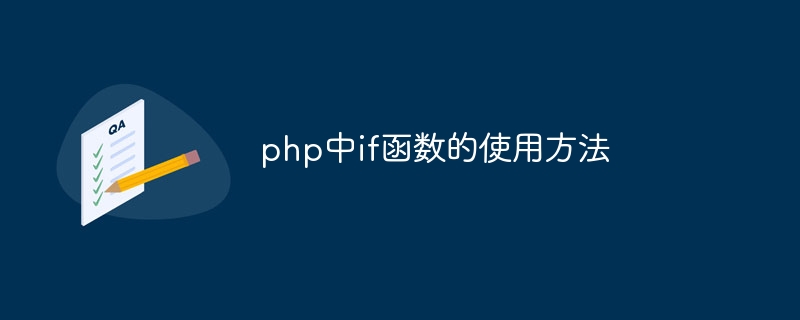Home >Backend Development >PHP Tutorial >How to use if function in php
How to use if function in php
- 下次还敢Original
- 2024-04-27 14:09:28483browse
The if function is a conditional statement that is used to execute a block of code based on a condition. It accepts a boolean expression as a condition parameter and executes the block of code when the condition is true. Common scenarios include user input validation, file existence checks, and error handling. It can also be used in conjunction with elseif and else clauses to create more complex conditional logic.

How to use the if function in PHP
What is the if function?
The if function is a conditional statement used to execute a block of code based on a given condition in PHP.
Syntax:
<code class="php">if (condition) {
// 如果条件为真,执行此代码块
}</code>
Parameters:
- condition: Condition to evaluate , can be any Boolean expression.
Return value:
if The function itself has no return value. If the condition is true, the code block is executed.
Usage scenarios:
The if function can be used to control program flow and execute different code blocks based on conditions. Common usage scenarios include:
- Verify user input
- Check whether the file exists
- Customize content based on user role
- Perform error handling
Example:
<code class="php">if ($age > 18) {
echo "您已成年。";
} else {
echo "您未成年。";
}</code>
In this example, the if function is used to check if $age is greater than 18. If true, print "You are an adult."; otherwise, print "You are a minor.
Note:
- The condition in the if function must is a Boolean expression, otherwise an error is raised. The
- if function can be followed by an optional
elseifclause and anelseclause. Nested if statements allow you to create more complex conditional logic
The above is the detailed content of How to use if function in php. For more information, please follow other related articles on the PHP Chinese website!

